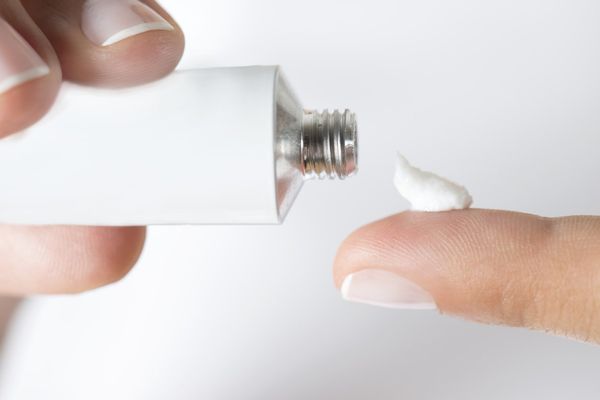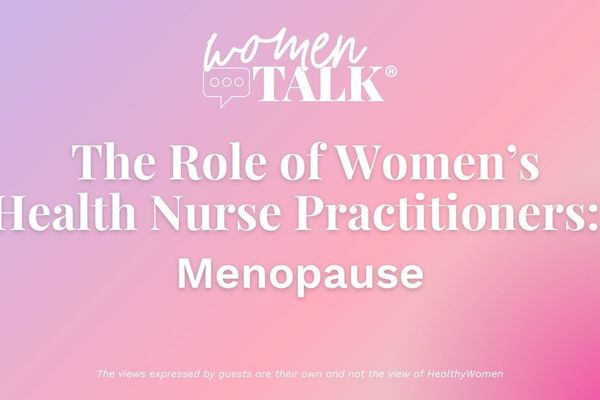A sudden burst of heat in the upper body, flushed skin and drenching sweat: Hot flashes are all too familiar to millions of women as they move through perimenopause and menopause.
In fact, The Menopause Society estimates that about three out of four women develop hot flashes around the time of menopause. About one in four women find hot flashes affecting their quality of life so much that they turn to their healthcare providers (HCPs) to seek relief.
Hot flash basics
We still don't know exactly what causes hot flashes or why some women get them and others don’t. Changes in hormone levels are the most likely cause. They may reset the brain’s hypothalamus, which acts like a thermostat. This means even small temperature changes can feel like a heat wave.
Some groups of women are more likely than others to develop vasomotor symptoms like hot flashes. Risk factors for more severe and frequent hot flashes include:
- Smoking
- Being overweight or having obesity
- A high-stress lifestyle, including mental health conditions such as depression and anxiety
- Socioeconomic factors like lower education and lower income
- Race and ethnicity (Black and Latina women)
For women who have hot flashes, the top concern is often how long they will continue. “We used to think that hot flashes were primarily after menopause, but we now know that they can and do start before the last menstrual cycle occurs,” said Stephanie Faubion, M.D., MBA, director of the Mayo Clinic’s Center for Women’s Health and medical director of The Menopause Society. “The average duration of hot flashes is about seven to nine years, which is a lot longer than we used to think. And about one-third of women who get them will have hot flashes for a decade or longer.”
Can hot flashes increase the risk of other diseases?
What happens when the hot flashes finally end? For years, the thinking was that hot flashes were nothing more than a temporary inconvenience. Now, an emerging body of research suggests that having had hot flashes during perimenopause can put you at greater risk for developing certain illnesses later in life. These include cardiovascular disease, memory issues and loss of bone mass.
Much of this research is based on the Study of Women’s Health Across the Nation (SWAN), an ongoing study that has been examining the physical and mental health of 3,000 U.S. women for 22 years. To date, researchers have used SWAN data in more than 600 scientific publications.
One recent study examined whether repeated hot flashes made women more likely to have a cardiovascular issue like a heart attack or stroke. The researchers found that women who have frequent hot flashes or hot flashes for many years faced a 50% to 77% increased risk of future cardiovascular disease events. Standard risk factors for cardiovascular disease, such as smoking status, diet and exercise, could not account for this increase. The women’s estrogen levels also could not explain their increased risk.
“We don't yet know if hot flashes are a direct cause or just a marker for increased risk for heart attacks and strokes down the line,” Faubion said. “It’s possible that vasomotor symptoms like hot flashes are actually a new female-specific cardiovascular disease risk factor and there may be risk differences depending on the pattern of hot flashes that women experience.”
Are hot flashes linked to bone loss?
It’s long been known that menopause and its drop in estrogen can lead to thinning bones and osteoporosis. Evidence now suggests that women who get hot flashes may be more likely to get bone fractures later. A 2015 study looked at data from the Women’s Health Initiative Clinical Trial, an eight-year study of nearly 30,000 women ages 50-79 who did not use hormone replacement therapy.
The researchers found that women who’d had moderate or severe hot flashes were nearly twice as likely to get hip fractures during the study period as those who did not have hot flashes. The women with hot flashes also had lower bone mineral density.
Can hot flashes cause memory loss or trouble sleeping?
Many women have found that their ability to sleep and remember things well can take a hit during menopause. Fortunately, these changes are likely to be temporary.
Faubion pointed out that there are many reasons why a woman could have sleep issues during menopause, not just hot flashes. “Women can also develop a primary sleep disorder, like obstructive sleep apnea or restless legs syndrome, during this time,” she said. “Any sleep disturbance is a concern always because poor sleep is associated with worse health outcomes over time, so a doctor visit is always warranted.”
As for brain fog and memory lapses during perimenopause, most women will fully recover as their hormonal levels even out. As for what role, if any, hot flashes play in cognitive function, that’s not yet clear. Two leading researchers wrote in a 2020 review article that it’s too soon to establish a cause-and-effect relationship between hot flashes and brain health but that treating hot flashes might turn out to help with brain fog.
If you have hot flashes, don’t suffer in silence
Treating your hot flashes may significantly improve your quality of life. “Women need to hear that there are safe and effective symptom management options out there, and they don’t have to suffer with these symptoms if they’re bothered by them,” Faubion said. “If hot flashes are getting in the way of your daily activities, your relationships, your work, your ability to function, your ability to enjoy life, please make an appointment with your doctor.”
Visit the menopause clinician finder at the website of the North American Menopause Society to find a Menopause Society Certified Menopause Practitioner (MSCP) near you.
This resource was created with support from Alora.
- Is It Hot in Here or Is It Just Me? Dealing With Menopause at Work. ›
- Hot flashes don't have to be the only thing making you sweat in the ... ›
- Menopause and Your Moods - HealthyWomen ›
- Keep Hot Flashes at Bay When Bundled Up - HealthyWomen ›
- The Anatomy of a Hot Flash - HealthyWomen ›
- How to Stay Heart-Healthy After Menopause - HealthyWomen ›







